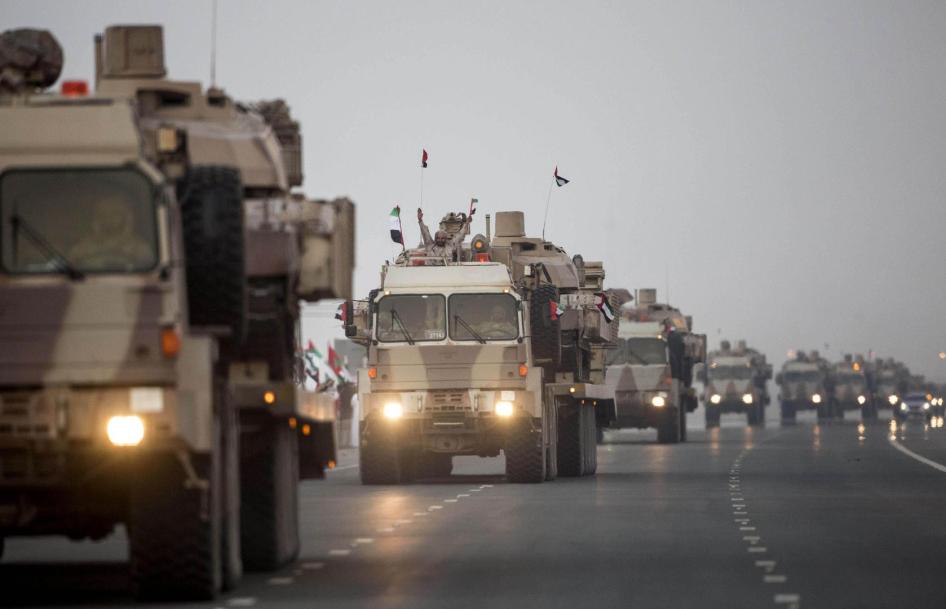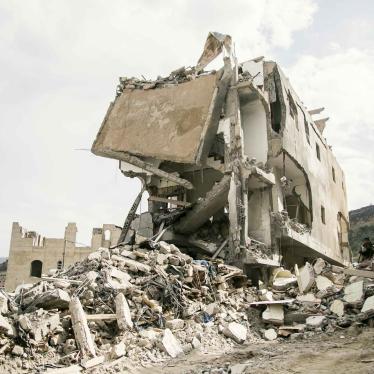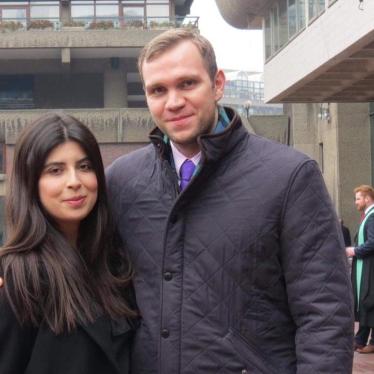(Beirut) – The United Arab Emirates in 2018 handed down draconian prison sentences to an Emirati activist and a British academic following deeply flawed trials, Human Rights Watch said today in its World Report 2019. The UAE also played a prominent role in the Saudi-led coalition’s military operations in Yemen.
In May, after security forces held him in an unknown location without access to a lawyer for more than a year, a UAE court sentenced Ahmed Mansoor, an award-winning human rights defender, to 10 years in prison for free speech-related offenses. In November, after authorities arbitrarily detained him for more than six months, the same court sentenced a British academic, Matthew Hedges, to life in prison on spying charges. But five days later, on November 26, following diplomatic pressure and international outrage, the UAE pardoned and released Hedges. Both trials were marred by serious due process violations, and Hedges has since spoken out about ill-treatment during detention. On December 31, the country’s court of last resort in state security cases upheld Ahmed Mansoor’s conviction, quashing his final appeal.
“Matthew Hedges’ six-month ordeal and Ahmed Mansoor’s continued imprisonment are further proof of the UAE’s fundamental lack of respect for the rule of law,” said Sarah Leah Whitson, Middle East and North Africa director at Human Rights Watch. “While it fervently claims to be a progressive, tolerant and rights-respecting state, over the past several years, the UAE has become worryingly unsafe for academics, journalists, activists, and critics alike.”
In the 674-page World Report 2019, its 29th edition, Human Rights Watch reviewed human rights practices in more than 100 countries. In his introductory essay, Executive Director Kenneth Roth says that the populists spreading hatred and intolerance in many countries are spawning a resistance. New alliances of rights-respecting governments, often prompted and joined by civic groups and the public, are raising the cost of autocratic excess. Their successes illustrate the possibility of defending human rights – indeed, the responsibility to do so – even in darker times.
In March, UAE authorities apparently forcibly returned and then disappeared Sheikha Latifa bint Mohammad al-Maktoum, the 33-year-old daughter of the ruler of Dubai, after she tried to flee the UAE by sea to a third country. She was not seen in public or heard from for over nine months following her disappearance. On December 6, just hours ahead of the airing of a BBC documentary regarding her forcible return, Sky News reported a statement from Dubai’s royal court claiming that she is back in Dubai and celebrating her birthday privately with her family. On December 24, the UAE’s foreign ministry released photos of Sheikha Latifa with Mary Robinson, a former United Nations high commissioner for human rights and a former president of Ireland, to rebut what they described as “false allegations” that she was taken home against her will. In an interview with BBC radio on December 27, Robinson echoed the ministry’s statement and suggested that the princess was mentally ill.
“Government assurances that she is receiving ‘the care and support she requires’ are no substitute for evidence that she is currently a free woman,” Whitson said. “The authorities should allow Sheikha Latifa to speak for herself and allow her to leave her country if she wishes.”
Labor abuses in the UAE persist. Despite some reforms, many low-paid migrant workers remain acutely vulnerable to forced labor. The kafala (visa-sponsorship) system ties migrant workers to their employers. Those who leave their employers without their consent before the end of a contact can face punishment for “absconding,” including fines, prison, and deportation. A 2017 law extended key labor protections to domestic workers, but the provisions remain weaker than those in the country’s national labor law. Domestic workers face a range of abuses, including long working hours, unpaid salaries, and physical and sexual abuse.
The UAE is a leading member of the Saudi-led coalition operating in Yemen. Human Rights Watch has documented about 90 apparently unlawful coalition attacks, some likely war crimes, since March 2015. Coalition members, including the UAE, have provided insufficient information about the role their forces are playing in the campaign to determine which country’s forces are responsible for unlawful attacks.
The UAE leads coalition efforts in southern Yemen, including by supporting Yemeni forces carrying out security campaigns. The UAE and UAE-led proxy forces have arbitrarily detained, forcibly disappeared, and tortured Yemenis in southern and eastern Yemen, including Yemeni activists who have criticized coalition abuses.
“As the civilian toll worsens and the war crimes allegations mount, the US, UK, France and other countries that continue to arm the UAE should press the UAE and their coalition partners to immediately end abuse and provide redress for Yemeni civilian victims of past unlawful attacks,” Whitson said.









